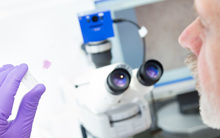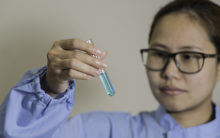Dr Suzy Lishman, President of The Royal College of Pathologists said:
“The Francis Inquiry backed the introduction of independent medical examiners. This has been repeatedly delayed. Medical examiners would scrutinise all deaths that aren’t referred to a coroner and would work closely with families to answer questions they may have and address any concerns. We believe that if an independent medical examiner had been in post, cases of poor care and neglect at Mid Staffordshire would have been spotted earlier, avoiding the needless suffering of hundreds of patients.”
The Inquiry chaired by Sir Robert Francis QC was published its report in February 2013. It found that hundreds of patients suffered unnecessarily as a result of substandard care and staff failings at two hospitals in Mid Staffordshire between January 2005 and March 2009.
Introduced in the Coroners and Justice Act 2009, the role of the medical examiner will be to seek out and consider any serious, adverse or untoward incidents relating to the care of the person who has died. They will also ensure that all circumstances are taken into account whether or not they are recorded in the medical records.
Medical examiners will also ask the bereaved family and the doctor who has certified the death whether they have any concerns about the death or the circumstances surrounding it.
The Francis report also recommended that guidance should be provided for hospital staff encouraging them to raise any concerns they may have to the medical examiner.
Dr Alan Fletcher, Chair of The Royal College of Pathologists Medical Examiners Committee and Lead Medical Examiner for a pilot site in Sheffield which has scrutinised over 13,000 deaths said:
“In Sheffield the benefits of the role of medical examiner have been made clear. There is much greater accuracy of the cause of death on medical certificates and the views of the bereaved families are asked for and considered.
We have also found that doctors who certify death certificates say they feel supported. The identification of any trends or patterns in the deaths scrutinised by medical examiners are also passed to those responsible for the overview of care; avoidable harm is detected and reported in every case, including sharing with families who are usually unaware. In my view, no other patient safety initiative can provide these benefits in a timely and truly independent way."
Notes for editors
- The Royal College of Pathologists is a professional membership organisation committed to setting and maintaining professional standards and to promoting excellence in the practice of pathology. As well as medically qualified members, the College has scientists amongst its membership and represents 19 pathology specialties. It has over 10,000 members who are senior staff in hospital laboratories, universities and industry, worldwide. www.rcpath.org
- The College is a registered charity and is not a Trade Union. It does not negotiate the terms of employment of its members.







